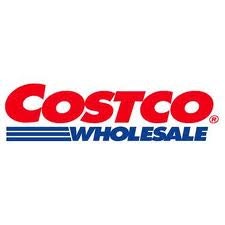Costco Wholesale (COST) is an American retail bedrock, selling products in bulk and charging an annual membership fee for purchasing privileges. Costco has a very strong hold on a slice of the consumer staples sector that looks to buy big for larger families or for small businesses. The company has done an excellent job of maintaining strong finances and a high number of visits from its regular customers.
Costco seems fair valued for the short term at around $92. However, given its consistent push at expansion internationally, and its resilient capacity to maintain profitability through tough economic climates, Costco makes an excellent long-term investment. International sales represent 27% of Costco’s total sales volume, and I believe that the company stands to develop a status as a blue-chip wholesale retailer.
Valuation and Earnings Growth
Costco shares are trading at their 52-week high of $92, and the potential upside to the stock for the short-term is somewhat limited. The stock has a P/E ratio of 25.55, which is greater than Wal-Mart’s (WMT), the holder of Costco’s major competitor Sam’s Club, P/E of 15. Costco seems overvalued according to both lagging and forward P/E—the S&P Consumer Staples Index maintains an average of 15. The company’s earnings for the third quarter 2012 (ending May 6) were up 19% year-over-year, suggesting a fair amount of growth. Indeed, most on the Street project the company growing by 12% over the next five years. Despite this, I would look for more short-term earnings generators before initiating a short-term position in Costco.
On other accounts, though, Costco has a strong fundamental valuation for the long-term value investor. Its price/book ratio multiple is 3.1, which is below the sector average of 3.3 and below Wal-Mart’s multiple of 4.8. The company values its total warehouse assets at $12.6 billion, and it owns over 90% of its warehouses (14% of which are on leased land). This is unusual for many hard-line retailers, and it is often a source of financial weakness. Long-term, this will certainly bode well for its stock valuation, as I believe that management’s purchasing of land and store facilities indicate its overall confidence in the long-term profitability of those locations.
Selling Bulk Consistently
Costco packs many products that its customers need either daily or weekly in order to ensure repeat visits. Competitive gasoline pricing and an abundant selection of fresh food allow many customers to shop at Costco not just for their discretionary purchases—refrigerators, books, and clothes—but for their staples. Market Force’s research indexing reports that Costco is the number one favored place to get gasoline in the United States, despite the fact that not all warehouses have gas stations. Costco’s business model obviously relies on volume sales, particularly given its low net margin of around 1.7%, so this consistent stream of customers is a necessity. Costco is continuing to work with its suppliers to reduce packaging costs to improve their weak margins.
Aside from sales, Costco has turned a reliable profit from membership fees, which totaled $475 million last quarter, $7 million above the analyst expectations. The renewal rate for membership was rather high (despite a hike in membership rates), and the total membership count for Costco is slightly under 67 million. The company’s warehouses stock brand-names, and its proprietary brand—Kirkland—famously produces (through careful research) “generic” alternatives that, in many cases, are vastly superior to brand names. The product base has as much appeal to the affluent shopper as the budget-minded one. Target (TGT) has a similar clean-cut approach and, like Costco, has added a “PFresh” food market to many of its stores to increase customer visits. For any discretionary retailer, I think these are praise-worthy decisions: Adding staples alongside discretionary products is destined to increase sales.
Solid Finances
The backbone that makes Costco a sure long-term investment is the company’s exceptionally steady management. The company recently bought out the rest of its 50% stake in Costco de Mexico SA de CV from Controladora Comercial Mexicana SAB, a move that was applauded by Moody’s, which reinstated its positive outlook and A1 investor-grade debt rating for the retailer. Moody’s Senior Analyst Charlie O’Shea stated that the move was in line with the company’s “prudent and conservative strategy … thus far employed for expansion into international markets where its concept resonates.” This comes as Costco looks to open 16 new clubs. In all, this steady expansion domestically and internationally supports the 5-year buy investment thesis.
Furthermore, given the company’s strong balance sheet, Costco should be able to weather minor setbacks in the economic climate. The company has a meager 14% debt/capital ratio, and the company holds 40% of its assets as cash (Wal-Mart only holds 14% as cash). This gives the company agility as it expands. Jim Sinegal stepped down as CEO earlier this year, having founded the company nearly three decades ago. His company-wide approval rating was 91%. He has established a company culture that grants employees large bonuses and upward mobility; Costco is consistently ranked among the best places to work in the United States.
A Large-Box Retail to Buy
Along with Wal-Mart and Target, Costco stands to be one of the major discretionary (and staple) retailers of the future. Short-term, there is obviously general economic anxiety as economic recovery abroad and in the United States depends on a decently organized resolution to the Euro Crisis. Aside from this, however, there are no major set-backs in Costco’s future, and the company’s increase in focus on food, gasoline, international stores, and new store openings in America stand to increase revenue by 10% in the coming year. With its strong momentum and sense of direction, Costco makes a strong long-term buy. Billionaires Warren Buffett, Ken Griffin, and Jim Simons are among Costco shareholders (see Warren Buffett’s top stock picks).



